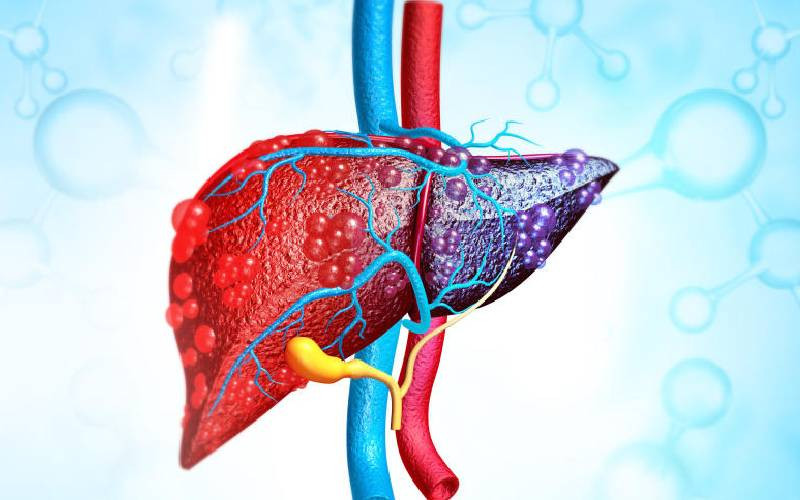
Liver transplant still unaffordable despite spiking cases
According to Dr Chris Opio, a gastroenterologist at the Aga Khan University Hospital in Nairobi, the liver is one of the crucial body organs responsible for immunity, digestion, metabolism, and any liver illness or sickness.
“It not only influences the digestive system, but also the kidneys, lungs, heart, and brain,” Dr Opio says.
He says the most common causes of liver diseases are hepatitis A, B, and C, viruses, and alcohol abuse.
“Other medical problems can also have detrimental consequences on the biggest body organ, causing damages that are irreversible,” says Dr Opio who is a specialist in the disorders and diseases that affect the digestive system, which includes the gastrointestinal tract – oesophagus, stomach, small intestine, large intestines, rectum and anus as well as the pancreas, liver, bile ducts and gallbladder.
The medic explains that if the liver suffers 70 per cent damage, the only option is for the patient to have a liver transplant. The liver donor can be a willing family member or someone unrelated but should share the same blood type with the patient.
According to Dr Opio, the liver donation process in Kenya has several phases including evaluation, surgery, and recovery. He also adds that donors must be aware of the risks associated with liver donation and the process.
Dr Julian Muiva, a Paediatric Gastroenterologist at the Kenyatta National Hospital says the facility receives at least five cases of babies aged between one day to three years who are diagnosed with liver-related diseases.
“Some of these babies were infected while in their mother’s wombs,” she explains.
The specialist, who also heads the clinic that provides health care for children up to 13 years, says liver diseases in children are preventable through vaccines and therapy.
“Liver-related diseases can be captured during early screening during anti-natal clinics, and if detected both the mother and the unborn baby receive treatment to prevent further complication,” said Muiva.
She further explains that babies and children who develop liver complications have transplants as the best treatment option.
However, she adds that the Ministry of Health and development partners are at an advanced stage in exploring ways of having the transplant procedure affordable and available locally.
If left untreated, she says, liver diseases can lead to liver and pancreatic cancers.
Both Dr Opio and Muiva agree that the most effective way of fighting liver diseases is the creation of awareness and education on how “to take personal care of your liver” since liver diseases can develop due to lifestyle, but they are preventable.




